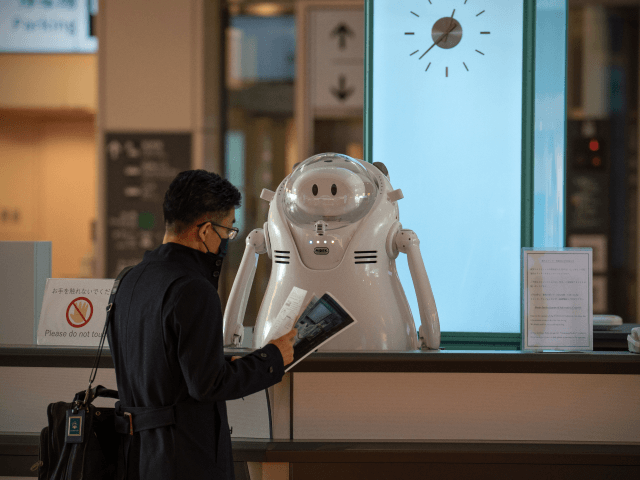The number of Americans concerned their jobs will become obsolete because of technology is on the rise, with more than one in five workers expressing such worries, according to a Gallup poll.
The poll, published on Monday, shows that 22 percent of Americans fear their jobs “will become obsolete because of technology.” This is the largest share of respondents to express this worry since Gallup began tracking the topic in August 2017.
Back then, just 13 percent worried technology would phase out their line of work. The number rose to 15 percent in 2019 before climbing to 17 percent in 2020 and dropping back to 15 percent in 2021. Notably, artificial intelligence has become more prevalent and garnered a bigger spotlight in the public eye compared to when the 2021 poll was taken.
Gallup notes that concerns about being replaced with technology have risen among college-educated workers from eight percent to twenty percent:
At the same time, worry among workers without a college degree is virtually unchanged at 24%. As a result, whereas non-college-educated workers were previously much more concerned about technological replacement than college-educated workers, these groups now express similar levels of concern.
Concern about technology making one’s job obsolete is also up more among younger than older workers, widening the generational gap evident in 2021. It has also increased more among those making less than $100,000 than those earning $100,000 or more.
Technology rendering one’s job unnecessary is the third leading concern among workers in the Gallup poll, behind fears their wages or benefits will be cut. Of the respondents, 31 percent are worried about their benefits being reduced, while 24 percent are concerned about their wages being slashed.

A man talks to a robot at an information desk at Haneda Airport on November 30, 2021, in Tokyo, Japan. (Carl Court/Getty Images)
The poll also discovered that 20 percent are worried about being laid off, and 19 percent are fretting about losing hours. Just seven percent of workers say they are concerned their company could move workers overseas.
Gallup’s sample includes 491 part-time or full-time adult workers in the United States, who were interviewed via telephone from August 1 to August 23. The margin of error is plus or minus five percentage points.


